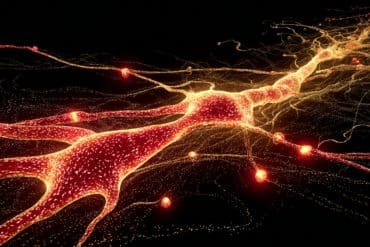Summary: Researchers report, for those with a genetic mutation that causes Alzheimer’s disease, 2.5 hours of physical activity per week may delay cognitive decline and have beneficial effects on tau in the brain. They speculate the same may be true for those with more common forms of the neurodegenerative disease.
Source: Alzheimer’s Association.
For individuals carrying a genetic mutation that causes Alzheimer’s disease, engaging in at least 2.5 hours of physical activity per week may have beneficial effects on markers of Alzheimer’s disease brain changes and may delay cognitive decline, according to a new study available online by Alzheimer’s & Dementia: The Journal of the Alzheimer’s Association as an article in press, corrected proof.
According to the authors, these results support the benefit of physical activity on cognition and dementia progression, even in individuals with autosomal dominant* Alzheimer’s disease (ADAD), a rare genetically-driven form of the disease in which the development of dementia at a relatively young age is inevitable.
The authors say their results, “show a significant relationship between physical activity, cognition, functional status and Alzheimer’s disease pathology even in individuals with genetically-driven ADAD. … The officially recommended physical activity duration of 150 minutes per week was associated with significantly better cognition and less Alzheimer’s disease pathology in ADAD. From a public health perspective, this amount of physical activity was achieved by 70% of all ADAD individuals participating at the DIAN study. Therefore, a physically active lifestyle is achievable and may play an important role in delaying the development and progression of ADAD.”
“The results of this study are encouraging, and not only for individuals with rare genetically-caused Alzheimer’s disease,” said Maria C. Carrillo, Ph.D., Chief Science Officer for the Alzheimer’s Association. “If further research confirms this relationship between physical activity and later onset of dementia symptoms in ADAD, then we need to expand the scope of this work to see if it also is true in the millions of people with more common, late onset Alzheimer’s.”
Christoph Laske, M.D. and his research team at the University Hospital of Tübingen, Germany analyzed data generated from 275 individuals (average age 38.4) who carry a genetic mutation for ADAD and are participating in the Dominantly Inherited Alzheimer’s Network (DIAN), an international observational study of individuals and families with ADAD led by researchers at Washington University School of Medicine in St. Louis.
Researchers aimed to determine if at least 150 minutes of physical activity (walking, running, swimming, aerobics, etc.) per week – the current recommendation by the World Health Organization and the American College of Sports Medicine – would produce cognitive benefits for the study participants. One hundred fifty-six (156) were classified as high physical activity individuals (>150 minutes physical activity/week); 68 as low physical activity individuals (<150 minutes physical activity/week). Exercise intensity was not measured, but the type and frequency was corroborated by a source such as a family member or a friend.
Researchers found individuals who engaged in more physical activity scored better on the Mini-Mental State Examination (MMSE) and the Clinical Dementia Rating Sum of Boxes (CDR-SOB), which are well-accepted standard measures of cognition and function. Similarly, individuals who exercised more had lower levels of Alzheimer’s disease biomarkers in cerebrospinal fluid, including lower tau, a protein that builds up in the brains of people living with Alzheimer’s disease. However, individual trajectories of cognitive changes have not been assessed in this cross-sectional study.
“A physically active lifestyle is achievable and may play an important role in delaying the development and progression of ADAD. Individuals at genetic risk for dementia should therefore be counselled to pursue a physically active lifestyle,” the study authors conclude.

“There is a growing and increasingly strong body of scientific evidence of the beneficial impact of lifestyle factors in reducing the risk for, and perhaps even preventing, cognitive decline and dementia,” Carrillo said. “For example, at AAIC 2018 in July we heard preliminary results of SPRINT MIND, the first randomized clinical trial to demonstrate that intensive blood pressure treatment reduces new cases of mild cognitive impairment (MCI), and the combined risk of MCI plus all-cause dementia. This adds credibility to the vision of future Alzheimer’s therapy that combines drugs and modifiable risk factor interventions — as we do now in heart disease.”
To more definitively generate scientific evidence on how lifestyle choices affect brain health, the Alzheimer’s Association is currently leading a large two-year clinical trial called the U.S. Study to Protect Brain Health Through Lifestyle Intervention to Reduce Risk (U.S. POINTER). The study is a two-year clinical trial to evaluate whether lifestyle interventions that simultaneously target many risk factors protect cognitive function in older adults who are at increased risk for cognitive decline. U.S. POINTER is the first such study to be conducted in a large group of Americans across the United States.
Funding: “Relationship between physical activity, cognition, and Alzheimer pathology in autosomal dominant Alzheimer`s disease,” by Dr. Stephan Muller, et al, was supported by The Dominantly Inherited Alzheimer’s Network (DIAN, U19AG032438), U.S. National Institute on Aging, German Center for Neurodegenerative Diseases (DZNE), Raul Carrea Institute for Neurological Research (FLENI), Japan Agency for Medical Research and Development, AMED, and Korea Health Industry Development Institute (KHIDI).
Source: Mary Jo Contino – Alzheimer’s Association
Publisher: Organized by NeuroscienceNews.com.
Image Source: NeuroscienceNews.com image is in the public domain.
Original Research: Open access research for “Relationship between physical activity, cognition, and Alzheimer pathology in autosomal dominant Alzheimer’s disease” by Stephan Müller, Oliver Preische, Hamid R. Sohrabi, Susanne Gräber, Mathias Jucker, John M. Ringman, Ralph N. Martins, Eric McDade, Peter R. Schofield, Bernardino Ghetti, Martin Rossor, Nick N. Fox, Neill R. Graff-Radford, Johannes Levin, Adrian Danek, Jonathan Vöglein, Stephen Salloway, Chengjie Xiong, Tammie Benzinger, Virginia Buckles, Colin L. Masters, Reisa Sperling, Randall J. Bateman, John C. Morris, Christoph Laske for the Dominantly Inherited Alzheimer Network (DIAN) in Alzheimer’s & Dementia. Published September 25 2018.
doi:10.1016/j.jalz.2018.06.3059
[cbtabs][cbtab title=”MLA”]Alzheimer’s Association”Exercise May Delay Cognitive Decline in People with Rare Alzheimer’s.” NeuroscienceNews. NeuroscienceNews, 25 September 2018.
<https://neurosciencenews.com/exercise-cognition-alzheimers-9911/>.[/cbtab][cbtab title=”APA”]Alzheimer’s Association(2018, September 25). Exercise May Delay Cognitive Decline in People with Rare Alzheimer’s. NeuroscienceNews. Retrieved September 25, 2018 from https://neurosciencenews.com/exercise-cognition-alzheimers-9911/[/cbtab][cbtab title=”Chicago”]Alzheimer’s Association”Exercise May Delay Cognitive Decline in People with Rare Alzheimer’s.” https://neurosciencenews.com/exercise-cognition-alzheimers-9911/ (accessed September 25, 2018).[/cbtab][/cbtabs]
Abstract
Relationship between physical activity, cognition, and Alzheimer pathology in autosomal dominant Alzheimer’s disease
Introduction
Little is known about effects of physical activity (PA) in genetically driven early-onset autosomal dominant Alzheimer’s disease (AD).
Methods
A total of 372 individuals participating at the Dominantly Inherited Alzheimer Network study were examined to evaluate the cross-sectional relationship of PA with cognitive performance, functional status, cognitive decline, and AD biomarkers in cerebrospinal fluid. Mutation carriers were categorized as high or low exercisers according to WHO recommendations.
Results
Mutation carriers with high PA showed significantly better cognitive and functional performance and significantly less AD-like pathology in cerebrospinal fluid than individuals with low PA. Mutation carriers with high PA scored 3.4 points better on Mini Mental State Examination at expected symptom onset and fulfilled the diagnosis of very mild dementia 15.1 years later compared with low exercisers.
Discussion
These results support a beneficial effect of PA on cognition and AD pathology even in individuals with genetically driven autosomal dominant AD.






